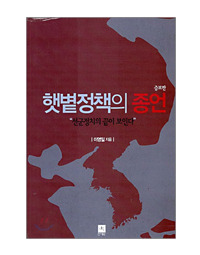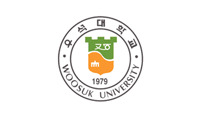“Countering Kim’s Nuclear Rationale” By Lee Young Il(Korea Herald June 4, 2009)
With his second underground nuclear test of May 25, and firing of six short-range missiles thereafter to the direction of Japan, North Korea’s top leader Kim Jong Il has demonstrated his determination to push ahead with his highly menacing nuclear and missile development program. Kim’s increasingly bellicose action underscores the futility of efforts by the United States and South Korea, as well as Japan, Russia and China to prevent him from acquiring a full-blown nuclear arsenal through negotiation.
As the United Nations Security Council debates a tougher resolution to strengthen the already existing Resolution 1718 banning its nuclear development, and the Security Council chairman’s statement condemning the April 5 longrange missile firing, Kim is again flaunting his total defiance of warnings from the international community. It now appears reasonable to assume that no response short of military retaliation or bombing can stop it from rapidly advancing its nuclear weapons technology.
As a matter of principle, Kim’s choice of nuclear option should be seen as contradictory. Given the Korean peninsula’s geopolitical constraints ? surrounded as it is by mature nuclear powers like Russia and China -- neither the North nor South should benefit from acquiring strategic weapons like nuclear bomb, long-range ballistic missiles or aircraft carriers. One part of Korea acquiring these means automatically raises the possibility of the other part following suit, in a widening circle of arms race. This strategic environment makes the Korean peninsula more a conventional theater than nuclear theater. Possession or deployment of nuclear arsenal by either side of the divided Korea necessarily invites interference from outside powers, complicating the process of attaining reunification. The division of Korea between a nuclear and nonnuclear section naturally makes it impossible to achieve reunification based on a confederation system, as stated in the North-South joint declaration of 15 June 2000 which Kim Jong Il signed with then South Korean president Kim Dae Jung.
The North’s argument that its nuclear arm is for defending itself from the US “hostility” is a piece of sophistry as there is no reason for the most powerful country in the world to invade one of the poorest countries on earth in the absence of existential threat. In fact, North Korea rather risks facing a first nuclear strike or other form of military intervention by acquiring and deploying nuclear weapons.
It’s clear Kim is using his nuclear drive for much bigger ambition ? a reunification of Korea under his control. Removal of US ground troops from the South is essential for that purpose. Development of a nuclear program ultimately aimed at producing warheads that can be carried on the international ballistic missiles capable of reaching the west coast of the mainland United States appears to be the ultimate goal of the Pyongyang regime.
Thus the real rationale for the acquisition of nuclear weapons is tied to his commitment to reunifying the peninsula under his Kim dynasty. It’s an illusory goal, for reunification based on military strength alone is clearly unachievable, especially given South Korea’s overwhelming military and economic strength.
South Korea today not only maintains a credible military balance against the North, it’s also one of the dozen biggest economies in the world. Its status as a thriving market economy based on international trading and a vibrant democratic order practically precludes any chance of the North getting what it wants through nuclear blackmail. In the war for hearts and minds of the people, the North has already lost the competition; in all conceivable areas of competition, it’s practically impossible for the North to bridge its gap with the South. Its only chance of survival as a nation or political regime lies in taking the road of China and adopt reform and opening as its guiding principle of state policy.
The garrison-state system of government, propped up by the military-first doctrine and hereditary succession of power, has devastated its economy; its perpetual food shortages caused the famine of 1995-2000 that killed up to two million people. Today, the North limps from one crisis to another through a broken-down Public Distribution system of haphazard rationings. Indeed, it has become a model of mendicant state surviving on international food aid, including that from the South, the US and China.
In light of the North’s refusal to lessen tension, it is time for South Korea to fundamentally reexamine its modus operandi in ensuring its survival as a nation. Under constraints of the Missile Technology Control Regime, the entire range of Seoul’s missile and missile defense capability has been artificially retarded. In order for the South to move ahead in the nuclear as well as missile technology against the North, South Korea must develop an independent deterrent power. In the area of nuclear technology, it already has the world’s fifth biggest capacity for generating peaceful nuclear power. Now that the North has bolted from the Nuclear Nonproliferation Treaty (NPT) regime, it may be necessary to review the 1992 North-South Nonnuclear Declaration, on condition that it be binding to both parts of the divided Korea.
In the short term, President Lee Myung Bak’s decision to participate fully in the US-led Proliferation Security Initiative is a welcome step incurbing the North’s nuclear arms program as well as its potential proliferation efforts. Lee’s failure to do so would have been same as abandoning our security commitments as a regional as well as global anti-proliferation player. But this is a small step. For a longer term perspective, it should not keep us from considering a more fundamental option of countering the North’s ultimate intention in seeking a nuclear option. Ends.
Lee Young Il is a three-term former legislator of the Korean National Assembly. He was spokesman of the Ministry of Unification and now teaches at Woosok University in Chonju. He can be reached at: 011-221-6676.(email: rh201@hanmail.net)








